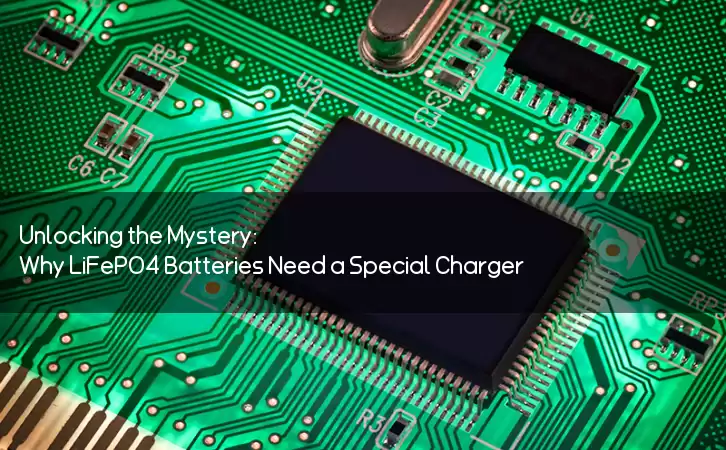Information Center
Unlocking the Mystery: Why LiFePO4 Batteries Need a Special Charger
Published:2023-08-12 20:32:39 Author:Green WCND Views:58Do LiFePO4 batteries need a special charger?

LiFePO4 (Lithium Iron Phosphate) batteries are a relatively new type of rechargeable battery which are gaining popularity due to their energy, weight, size, life cycle, and safety characteristics. They are used in a wide range of applications, including electric vehicles, solar power systems, portable electronics, industrial machinery, and marine systems. LiFePO4 batteries are known for their high energy density, low self-discharge rate, long cycle life, and stable chemical structure.

A common question asked by many users is whether LiFePO4 batteries require a special charger. The answer is yes, LiFePO4 batteries do need a special charger. Unlike traditional lead-acid batteries, LiFePO4 batteries require a specific charging algorithm to maintain their health and maximize their performance. This is because LiFePO4 batteries have a different voltage range, charge rate, and charge termination point than other battery chemistries.
A specialized LiFePO4 battery charger is designed to meet the specific requirements of these batteries, including a constant voltage and constant current charging profile and specific cutoff voltage settings. These chargers are usually sophisticated devices that take into account the battery’s state of charge, temperature, and internal resistance to tailor the charging process to the specific battery. A typical LiFePO4 battery charger will include features such as over-voltage protection, over-current protection, short-circuit protection, temperature protection, and reverse polarity protection. These safety features protect the battery and the charging circuit from damage caused by incorrect charging methods.
Using a standard lead-acid battery charger or other types of battery chargers may damage the LiFePO4 battery. This is because the charging profile of a LiFePO4 battery is different from that of a lead-acid battery. A lead-acid battery charger may overcharge or undercharge a LiFePO4 battery, which can reduce its lifespan or even cause it to fail prematurely. Using an improper charger can also result in the battery overheating, swelling, and becoming damaged.
Another important factor to consider when charging a LiFePO4 battery is the charging temperature. LiFePO4 batteries should be charged within a temperature range of 0°C to 45°C or 32°F to 113°F. Extreme temperatures can damage the battery and reduce its lifespan. A dedicated LiFePO4 battery charger will have temperature sensors to monitor the battery’s temperature and adjust the charging current accordingly.
In summary, LiFePO4 batteries need a specialized charger to optimize their performance and maximize their lifespan. A dedicated LiFePO4 battery charger includes a sophisticated charging algorithm and various safety features to ensure the battery is charged properly and safely. Using a standard lead-acid battery charger or other types of battery chargers may damage the battery and reduce its lifespan. Therefore, it is essential to use a compatible charger that is specifically designed for LiFePO4 batteries to ensure the best results.
Power Adapter Design and Customization Guide for Portable Electric KettlesI. Common Design Types for Portable Electric Kettle Power AdaptersPortable electric ke···
I. Common Design Types of Power Adapters External Independent Type (Most Common) Design: A standalone adapter (e.g., "black brick") connected to the p···
Handheld Vacuum Cleaner Power Adapter Selection GuideIntroductionHandheld vacuum cleaners have become a mainstream tool for household cleaning due to their port···
Drill Power Adapter Selection Guide.drill-container { font-family: Arial, sans-serif; line-height: 1.6; max-width: 800px; margin: 0 auto; padding: 20px; } .dril···





